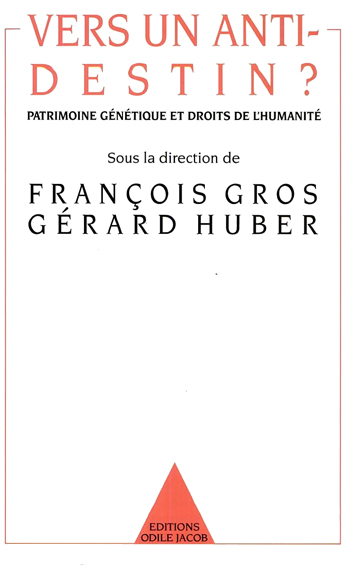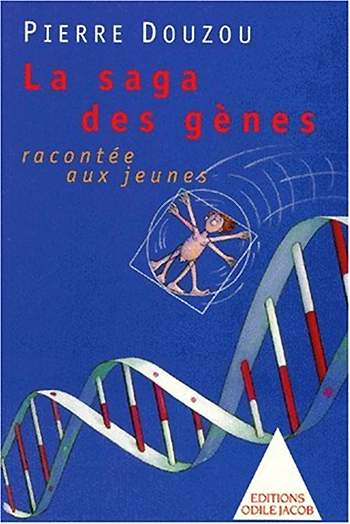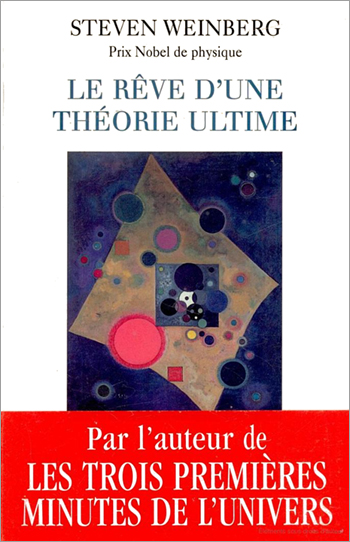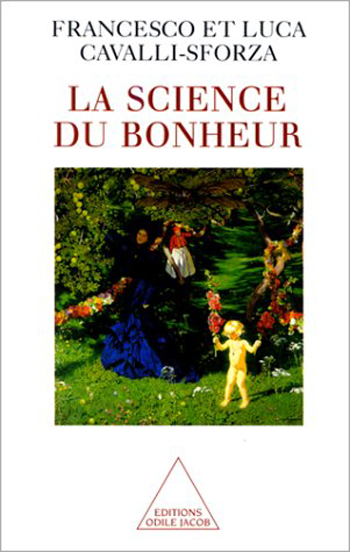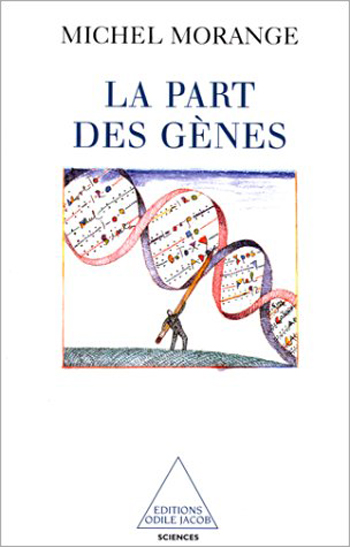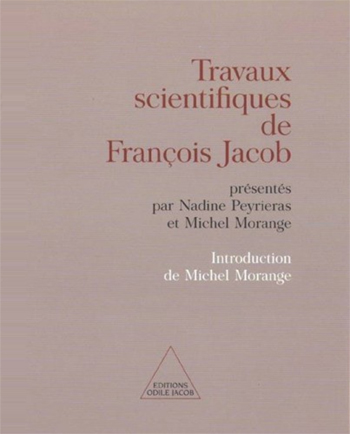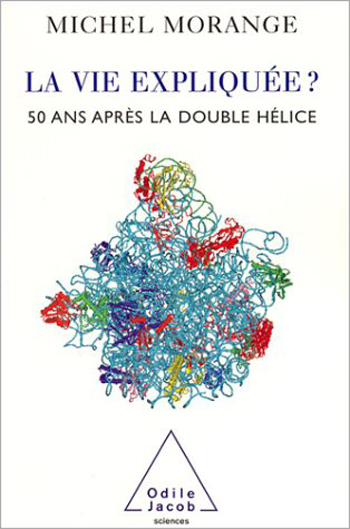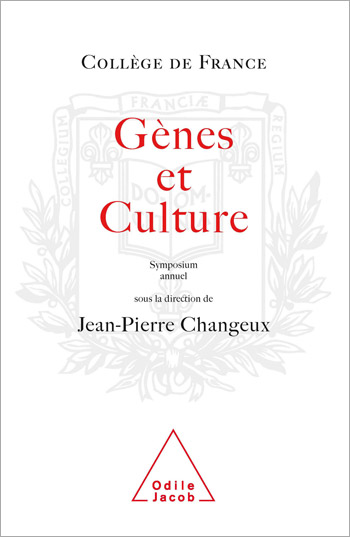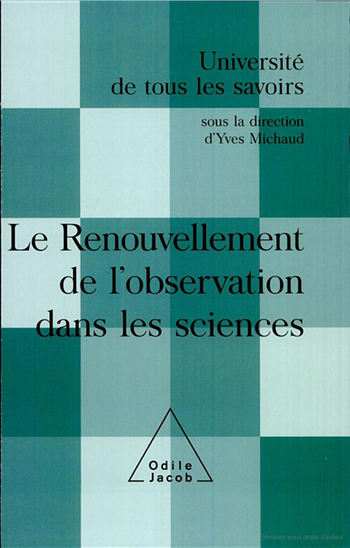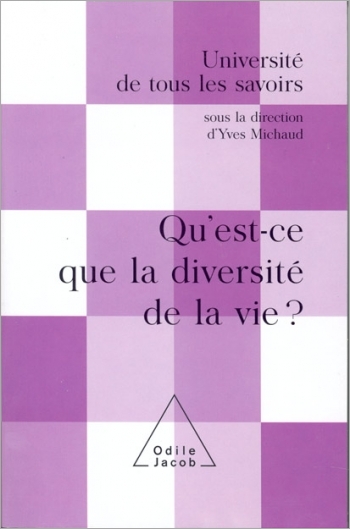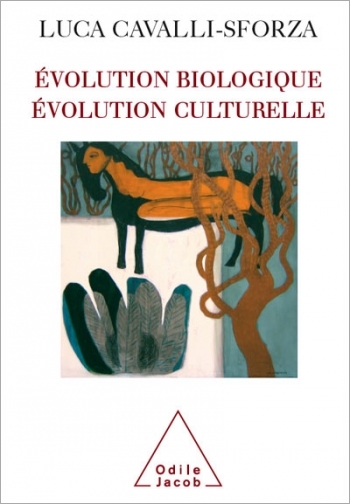Genetic All books

Philippe Kourilsky
The Architects of Heredity
Is man on the verge of controlling heredity? Will the characteristics of living creatures soon depend on our choice ? Do genetic manipulation, cloning and mutation warrant the fear they inspire? Philippe Kourilsky is the General Director of the Pasteur Institute. He is a professor at the Collège de France, and a member of the Academy of Sciences.
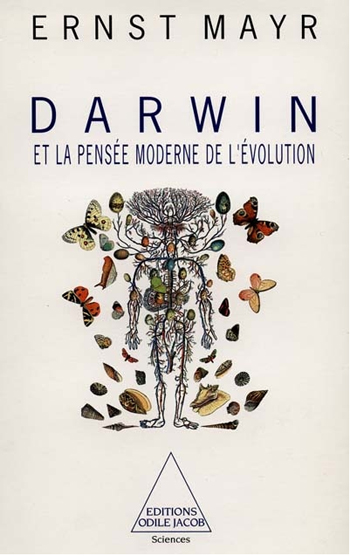
Ernst Mayr
One Long Argument: Charles Darwin and the Genesis of Modern Evolutionary Thought (Questions of Science)
Without Darwin, our knowledge of the living would not be what it is today. But who was really the author of The Origin of Species? Why did these hypotheses lead to one of the most important scientific revolutions of our time? To what questions was Darwin unable to find an answer? Ernst Mayr is a professor emeritus at Harvard University.

Edward O. Wilson
The Diversity of Life
What are the mechanics of evolution? What is the force behind diversity and the proliferation of the species? Why does nature never stop inventing new forms of life? What is the effect of great catastrophes on the evolution of the species? What is the real effect of human action on nature? A professor at Harvard University, Edward O. Wilson is one of the most important theoricians of biological evolution. He is also one of the most ardent lobbyists for the preservation of nature.
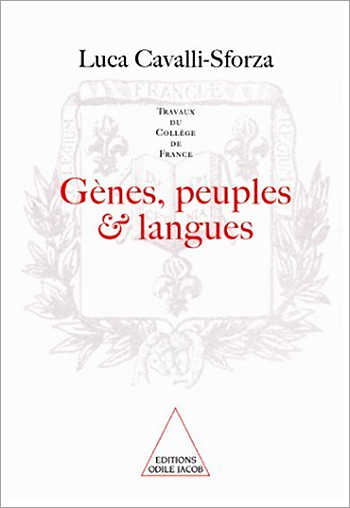
Luca Cavalli-Sforza
Genes, People and Languages (Work of the Collège de France)
How is culture passed on ? Is it possible to reconstruct the history of the evolution of the human species using genetic information from existing populations ?

Richard Dawkins
The Selfish Gene
The Selfish Gene has been described as the most important book about evolutionary theory since Darwin. According to Dawkins theory of the selfish gene, natural selection does not take place on the level of the species or of the individual but rather among genes. Dawkins argues that human beings are programmed to preserve their selfish molecules, which are known as genes. Dawkins brilliant style shows that complex scientific ideas can be explained and made accessible to the general public, and that biology can be as exciting as an adventure story. Richard Dawkins is a renowned evolutionary biologist.
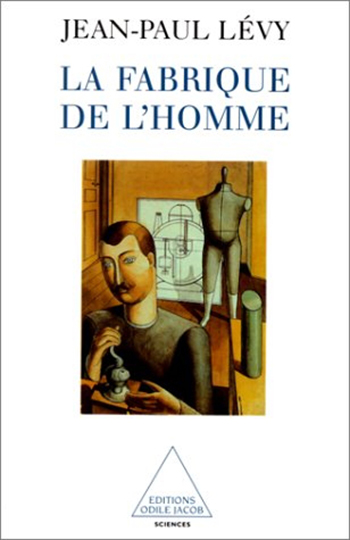
Jean-Paul Lévy
The Making of Man
Jean-Paul Lévy's book is marked by a resolutely materialistic reflexion, characteristic of biologists : the only thing that distinguishes man from all other living things is the capacity to reason. From this prospective, he explains how a human body is constructed, how and why it produces thoughts and why, one day, it finally ceases to function and dies. His thought process leads to a materialistic solution of the problem of the union of the body and soul. Jean-Paul Lévy is a hematologist and immunologist. He heads France's National Agency for AIDS Research
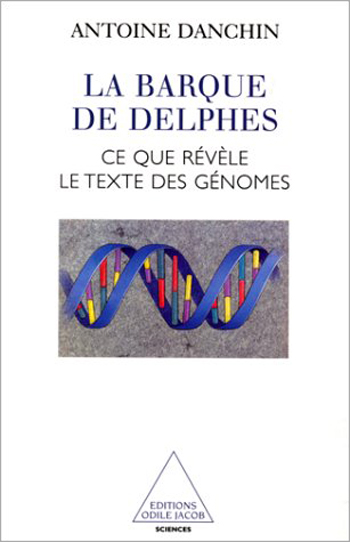
Antoine Danchin
The Delphic Boat What Genomes Tell Us
What is it that constitutes the unity and identity of a living creature ? This is the fundmental question of biology. The recent sequencing techniques provide a completely new response to this question, notably thanks to the knowledge of whole genomes. Antoine Danchin establishes a clear picture of this important biological discovery. He shows in particular that, just like the boat of Delphi, life is beyond prediction, and at the same time has an infinite capacity to create the unexpected. Antoine Danchin is the director of the Department of Biochemistry and Molecular Genetics at the Institut Pasteur.
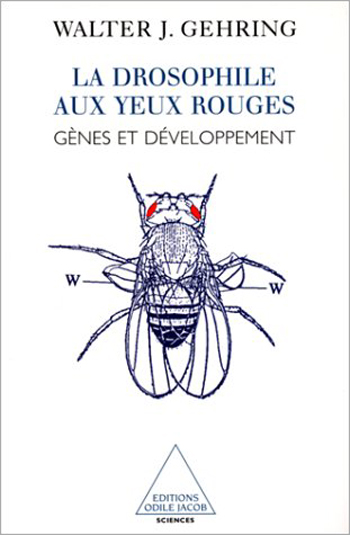
Walter J. Gehring
Master Control Genes in Development and Evolution: The Homeobox
What can be more amazing than an embryos development? How do the cells know that the eyes go on the face and not on a leg or some other part of the body? And why does this information sometimes go awry giving rise to a deformed creature? Walter J. Gehring, a renowned specialist in the genetics of embryonic development, traces recent developments in the field. Walter J. Gehring teaches cellular biology at the University of Basle, Switzerland.
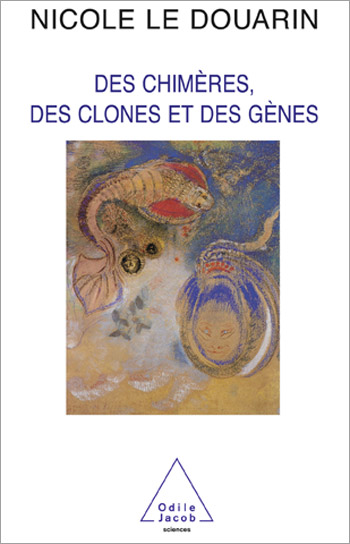
Nicole Le Douarin
Dreams, Clones and Genes
This book affirms that we are at the dawn of a new type of medicine which will no longer be concerned only with palliative measures and repairs, but will also be capable of regenerating diseased tissues via the introduction of embryonic cells. This major upheaval will oblige us to reconsider the meaning of the individual and of life itself. Nicole Ledouarin teaches at the Collège de France.
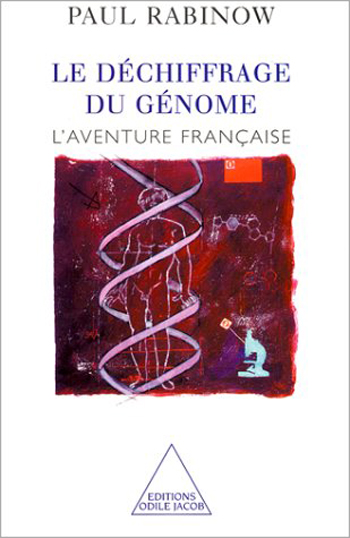
Paul Rabinow
French DNA: Trouble in Purgatory
This book offers some surprising viewpoints: an anthropologist tells the story of the human genome sequencing project; a scholar of the humanities follows the crisis between a French laboratory, the Centre dÉtude du Polymorphisme Humain (CEPH), and a U.S. rival; an American intellectual describes the politics within the French scientific community. This exceptional survey of the most recent research trends and of the state of international competition in the field of genetic research gives us a notion of how our future health care is being prepared. Paul Rabinow teaches anthropology at the University of California at Berkeley.
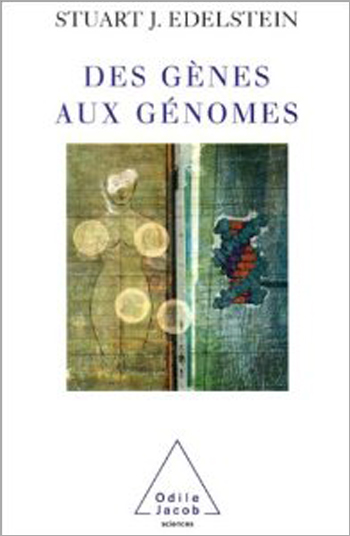
Stuart J. Edelstein
From genes to genomes
Rapid progress in the field of genetics is changing our lives in more ways than one. In order to understand these changes, Stuart Edelstein has approached each facet of the subject from three points of view: contemporary society and politics; technical developments; and basic research. By keeping to some fundamental points, this book will enable the lay reader to understand before judging the social implications of recent discoveries in biology. This is science with a civic sense. Stuart Edelstein teaches biochemistry at the University of Geneva.
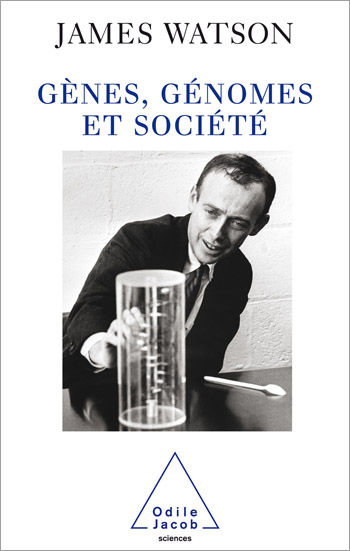
James Watson
A Passion for DNA Genes, Genomes and Society
In 1953, two young scientists, James Watson and Francis Crick, began a scientific revolution when they discovered the double helix structure of the DNA molecule, the substance that is the basis of heredity. James Watson, who won Nobel Prize in 1962 at the age of 34, has continued to play a central role in the field of genetics. Throughout his long scientific career, he has constantly sought to explain the latest developments and findings. The present volume is a collection of articles and lectures reflecting his views during the past fifty years on such subjects as GM foods, cancer, the sequencing of the human genome, and the ethical and social consequences of biology. This is a thought-provoking, often optimistic and always spirited book, reflecting the life and work of one of the great minds of the twentieth century.

James Watson
DNA The Secret of Life
Fifty years ago, when he was only 24, James Watson contributed to cracking the genetic code and thus helped resolve one of the greatest scientific mysteries of our age. In DNA: The Secret of Life, he goes back in time and offers an overall view of the genetic revolution. He gives us the keys to understanding the molecular foundations of life and shows to what extent our knowledge of genetics affects how we regard our origins and our own identity. Drawing on his long experience at the forefront of genetic research, he examines the brave new world that lies before us all and the consequences of the genetic revolution. James D. Watson is best known as the co-discoverer, with Francis Crick and Maurice Wilkins, of the molecular structure of DNA. For this accomplishment, the three men shared the 1962 Nobel Prize for Physiology or Medicine. In 1968, he was appointed director of Cold Spring Harbor Laboratory, on Long Island, New York, and has served as its president since 1994. Andrew Berry is a junior fellow at the Museum of Comparative Zoology at Harvard University
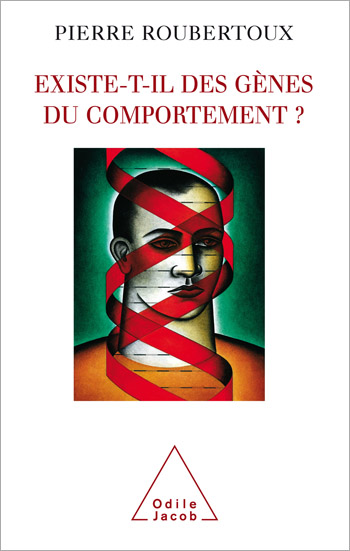
Pierre Roubertoux
Existe-t-il des gènes du comportement ?
Recent advances in genetic research have had widespread and far-reaching influences in fields as varied as animal and plant biology and medicine. They have also upset some ethical rules. Genetics today is in a triumphant, seductive phase, but its limits are yet to be defined. In this book, the eminent French geneticist Pierre Roubertoux argues that genetics has strayed too far from its justifiable areas of application. Soon, genetics may even be applied to the mind and to consciousness, just as it is already being applied to behaviour by scientists who contend that each type of conduct has its corresponding gene (this is tantamount to saying a specific gene is responsible for each virtue and each vice). Scientists who defend this theory say that they have discovered genes linked to various degrees of activity in mice and flies. Thus, intemperance and gluttony would be linked to a genetic partiality to alcohol, sugar or fats. Pride could be explained by a gene for dominance which has allegedly been found in mice. Greed, too, could be explained by a gene. The supposed existence of an infidelity gene was much in the news three years ago. This is a sound scientific synthesis which will enable readers to grasp the contribution of genetics to our comprehension of who and what we are. It should also help them resist the temptation of reducing everything to genetics. Pierre Roubertoux is a professor at the University of Aix-Marseille and a research fellow at the Institute of Physiological and Cognitive Neuroscience at the Centre National de la Recherche Scientifique (CNRS).



